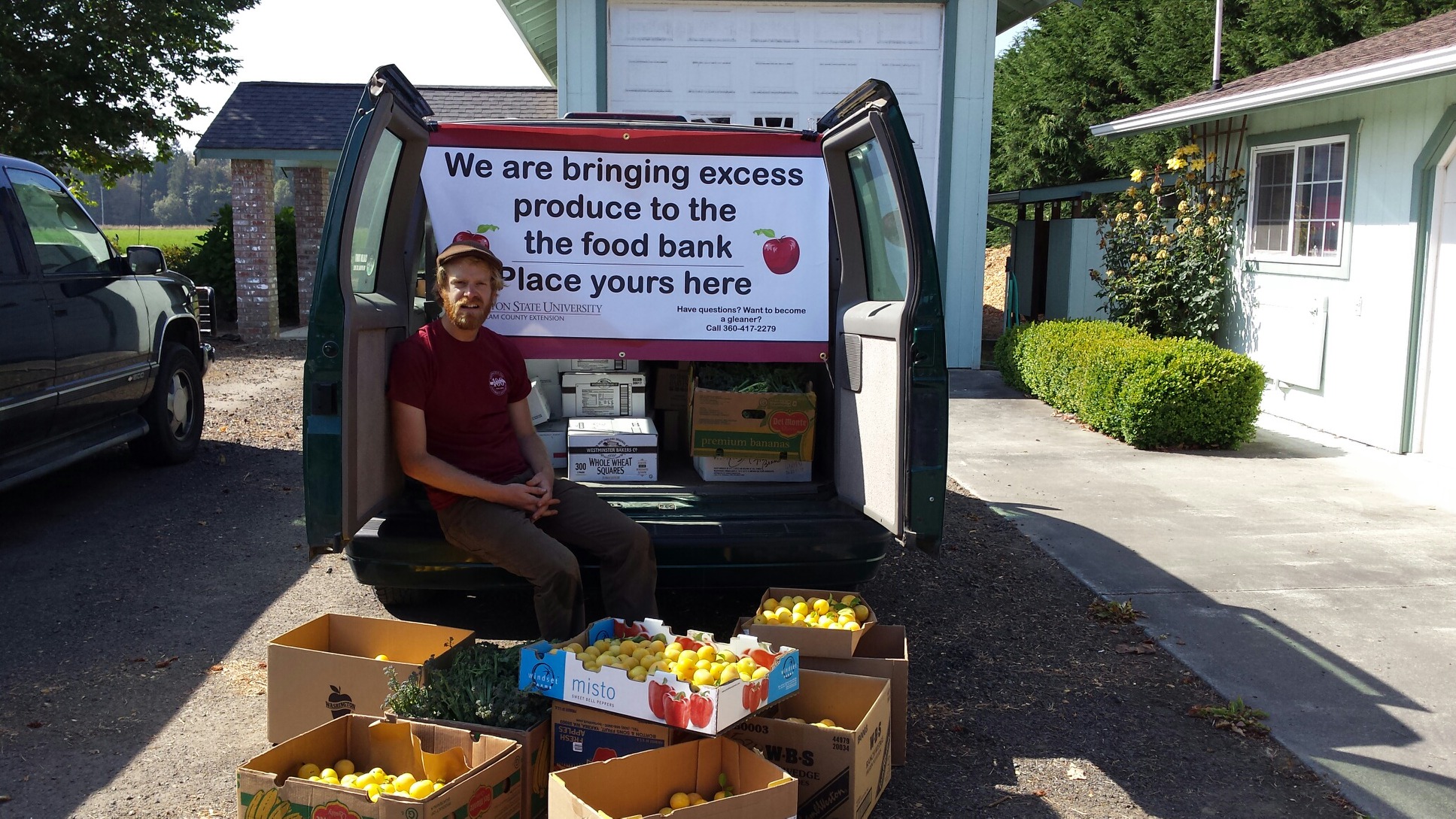
Promotional materials are a must. Develop handouts and flyers for potential volunteers and donors. Materials can inform both groups and the general public or can target one group at a time. Flyers can be a poster like and/or pull tab. For events, it’s great to have a quarter-page handout that explains how to get involved. Give concrete steps to show the ease of the program. No one wants a hand out that only says, “Contact our office for more information”. Provide contact information but explain the process and context of gleaning in the program. Door hangers that provide property owners with program goals and contacts are helpful. Volunteers can use these in their own neighborhoods as an unobtrusive way to spread the word about gleaning. The gleaning coordinator can then explain any details if contacted.
Developing flexible PowerPoints that can be used for different populations will come in handy. On your slides use concrete and simple concepts that can be employed during presentations. Simple statistics on the number of volunteers, volunteer hours, poundage harvested, and food agencies reached, etc. can be effective. Getting familiar with a good PowerPoint is worth a lot more than developing a new one every week for every occasion.
Another means of helping your program expand is to try different communication mediums. These include:
· Facebook, Instagram, Twitter, Myspace, LiveJournal, AOL Instant messenger, YouTube, LinkedIn
· Local Radio-Almost always a free service. Great for recruiting volunteers of certain generations
· Other Local Publications-Regional magazines, supplemental inserts, local organization newsletters
· Public Access Television-Moving pictures are not only seen on the World Wide Web. Teaming up with a local film student is mutually beneficial.
· Newspapers Press releases-Usually free for nonprofits organizations.
SAMPLE PRESS RELEASE

